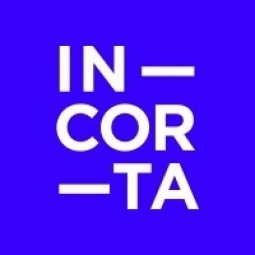Customer Company Size
Large Corporate
Region
- America
Country
- United States
Product
- Incorta Analytics
- Toast’s all-in-one restaurant management system
Tech Stack
- Cloud-based solution
- Salesforce
Implementation Scale
- Enterprise-wide Deployment
Impact Metrics
- Revenue Growth
- Productivity Improvements
- Customer Satisfaction
Technology Category
- Analytics & Modeling - Real Time Analytics
- Platform as a Service (PaaS) - Data Management Platforms
Applicable Industries
- Food & Beverage
- Retail
Applicable Functions
- Sales & Marketing
- Business Operation
Use Cases
- Real-Time Location System (RTLS)
- Predictive Quality Analytics
Services
- Data Science Services
- System Integration
About The Customer
Toast’s all-in-one restaurant management system is at the forefront of the point-of-sale (POS) industry. Traditional POS systems are often difficult to operate and poorly serviced. Toast was built from the ground up to tear down this traditional paradigm and provide restaurants with mobility, easy access to data and updates, and an improved customer experience. Its cloud-based solution is dramatically changing the way food service businesses manage their operations. As a fast-growing company with a rapidly-expanding customer base, Toast found itself inundated with data and an increasing number of data sources.
The Challenge
As a fast-growing company with a rapidly-expanding customer base, Toast found itself inundated with data and an increasing number of data sources. With no analytics solution in place, employees used a combination of giant Excel spreadsheets and Salesforce dashboards. Everyone acted as their own Excel analyst, passing around spreadsheets, discussing how to look at the data, and debating why their numbers didn’t match up. The Salesforce dashboards employees utilized varied tremendously—even the same dashboards were viewed using different filters. Each minute spent discussing discrepancies in the data meant less time focused on the important issues facing the company. Without quick access to consistent information it became harder and harder to make timely decisions.
The Solution
Toast evaluated several possible analytics solutions at length. After taking a close look at a number of options, Toast chose Incorta for its speed, flexibility, and intelligent approach to looking at the data. Incorta aggregates large, complex business data in real-time, eliminating the need for a data warehouse. So, businesses using Incorta can roll out new analytics applications in days instead of months and reduce reporting run times to just seconds. Incorta also offered the flexibility Toast required to analyze various types of information, including data related to its own sales performance, customer sales and menu items, and credit card billing. Lastly, Incorta provided the means to examine data more intelligently.
Operational Impact
Quantitative Benefit

Case Study missing?
Start adding your own!
Register with your work email and create a new case study profile for your business.
Related Case Studies.

Case Study
The Kellogg Company
Kellogg keeps a close eye on its trade spend, analyzing large volumes of data and running complex simulations to predict which promotional activities will be the most effective. Kellogg needed to decrease the trade spend but its traditional relational database on premises could not keep up with the pace of demand.

Case Study
HEINEKEN Uses the Cloud to Reach 10.5 Million Consumers
For 2012 campaign, the Bond promotion, it planned to launch the campaign at the same time everywhere on the planet. That created unprecedented challenges for HEINEKEN—nowhere more so than in its technology operation. The primary digital content for the campaign was a 100-megabyte movie that had to play flawlessly for millions of viewers worldwide. After all, Bond never fails. No one was going to tolerate a technology failure that might bruise his brand.Previously, HEINEKEN had supported digital media at its outsourced datacenter. But that datacenter lacked the computing resources HEINEKEN needed, and building them—especially to support peak traffic that would total millions of simultaneous hits—would have been both time-consuming and expensive. Nor would it have provided the geographic reach that HEINEKEN needed to minimize latency worldwide.

Case Study
Improving Production Line Efficiency with Ethernet Micro RTU Controller
Moxa was asked to provide a connectivity solution for one of the world's leading cosmetics companies. This multinational corporation, with retail presence in 130 countries, 23 global braches, and over 66,000 employees, sought to improve the efficiency of their production process by migrating from manual monitoring to an automatic productivity monitoring system. The production line was being monitored by ABB Real-TPI, a factory information system that offers data collection and analysis to improve plant efficiency. Due to software limitations, the customer needed an OPC server and a corresponding I/O solution to collect data from additional sensor devices for the Real-TPI system. The goal is to enable the factory information system to more thoroughly collect data from every corner of the production line. This will improve its ability to measure Overall Equipment Effectiveness (OEE) and translate into increased production efficiencies. System Requirements • Instant status updates while still consuming minimal bandwidth to relieve strain on limited factory networks • Interoperable with ABB Real-TPI • Small form factor appropriate for deployment where space is scarce • Remote software management and configuration to simplify operations

Case Study
Energy Management System at Sugar Industry
The company wanted to use the information from the system to claim under the renewable energy certificate scheme. The benefit to the company under the renewable energy certificates is Rs 75 million a year. To enable the above, an end-to-end solution for load monitoring, consumption monitoring, online data monitoring, automatic meter data acquisition which can be exported to SAP and other applications is required.

Case Study
Coca Cola Swaziland Conco Case Study
Coco Cola Swaziland, South Africa would like to find a solution that would enable the following results: - Reduce energy consumption by 20% in one year. - Formulate a series of strategic initiatives that would enlist the commitment of corporate management and create employee awareness while helping meet departmental targets and investing in tools that assist with energy management. - Formulate a series of tactical initiatives that would optimize energy usage on the shop floor. These would include charging forklifts and running cold rooms only during off-peak periods, running the dust extractors only during working hours and basing lights and air-conditioning on someone’s presence. - Increase visibility into the factory and other processes. - Enable limited, non-intrusive control functions for certain processes.








